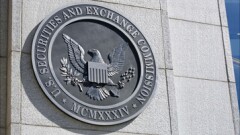At the beginning of 2022, the Biden administration didn't know what tack it was going to take in regards to regulating cryptocurrency.
Is crypto providing a boon to minority communities by expanding financial access? Is it a dangerous new technology that needs to be curtailed? Probably somewhere in between?
By the end of the year, the administration had its answer. The Biden administration's tone sharpened significantly, and banks looking to dip their toes in the water have largely been warned off pursuing crypto-related business lines.
That shift sets up a volatile situation for 2023. Some banks, like Bank of New York Mellon, are moving ahead with their efforts to custody crypto without regulators' enthusiastic support. Other banks that have made crypto partnerships a cornerstone of their business models are facing harsher market conditions.
Meanwhile, regulators and lawmakers are looking for their pound of flesh after the spectacular collapse of crypto exchange FTX and its founder Sam Bankman-Fried.
What follows is a look back at crypto policymaking in 2022.










